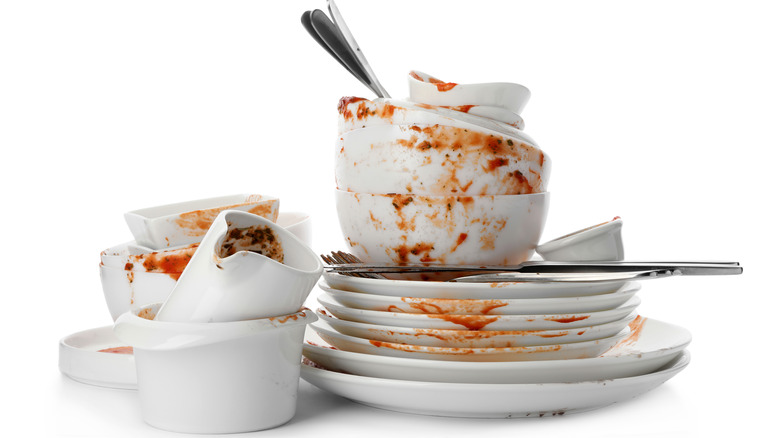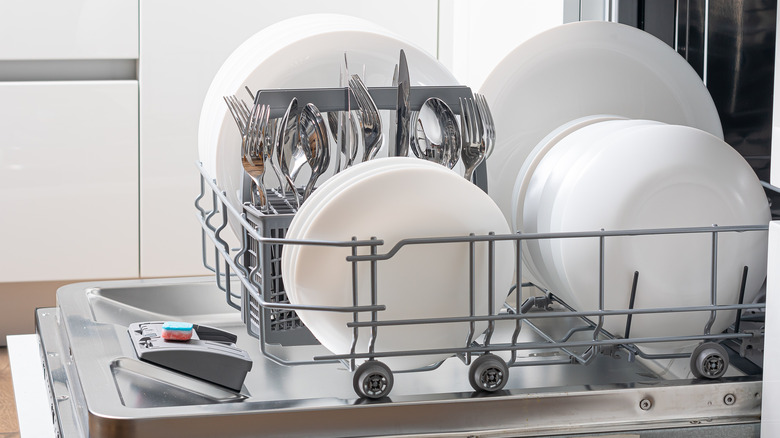Dishwasher Versus Hand-Washing Dishes: Which One Is Healthier?
When it comes to hand-washing dishes versus using a dishwasher, some might argue that it comes down to personal preference. A 2015 poll conducted by home improvement resource, Houzz, surveyed participants from eight different countries about their preferred dishwashing method. Results indicated that 67% of Americans are dishwasher fans — a statistic that was predominately echoed among the seven other countries as well. However, across each of the eight countries, 30-40% of individuals still favor washing dishes by hand.
Associate Professor Barbara Mullan from Curtin University's school of psychology told 720 ABC Perth just how dirty our used dishes can get, stating, "Ultimately if you leave dirty dishes around and there are people in the house, and possibly animals, they are likely to spread bacteria around. Bacteria will stay alive on surfaces, even clean surfaces, for up to four days. So on dishes that have contamination like food particles, bacteria can stay alive for a very long time."
So when it comes to getting rid of all that bacteria, is an overnight dishwasher cycle more effective, or is a little elbow grease more likely to do the trick?
A higher water temperature gets dishes cleaner
As it turns out, dishwashers are no less susceptible to bacterial contamination than our plates and forks are. Research has shown that 100% of dishwasher appliances contain bacteria, primarily around the rubber seal (via Columbia Daily Tribune). A 2018 study published in Applied and Environmental Microbiology examined 24 different dishwasher machines and found the presence of a variety of bacteria and fungus. While the microbes detected were classified as "opportunistic pathogens" — meaning essentially harmless to most healthy adults — infections from such pathogens are possible in those who are immuno-compromised (via HealthDay).
Even with the presence of germs in dishwasher appliances, however, dishwashers still rank as healthier than the standard hand-washing approach. One reason is that the water temperature of a dishwasher is higher than that of what we typically use when hand-washing dishes — and it's those high temperatures keeping our dishes so squeaky clean. The Washington Post reports that dishwasher cycles can use water temperatures between 140 to 145 degrees, temperatures that would be scalding to human hands.
Not to mention, your trusty sponge is prime real estate to microbes and other germs. "It has a lot of nooks and crannies, so as you clean up a mess with potential pathogens in it, some of the organisms become lodged in between the sponge," Dr. Philip Tierno tells HuffPost. However, when it comes to hand-washing dishes, thoroughly sanitizing your sponge may help.

